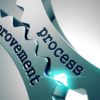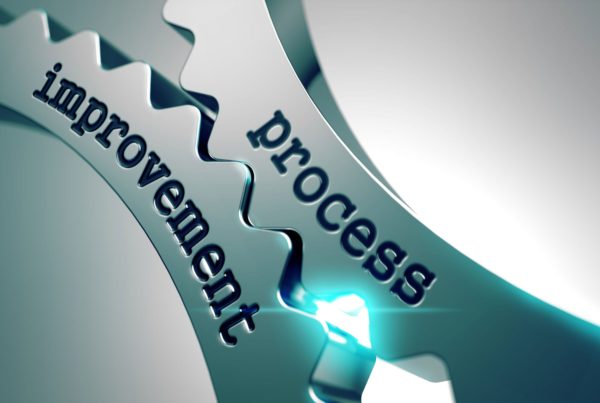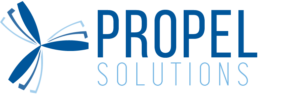It is back to school time and learning is in the air! Continuous growth and learning are central to Propel’s Core Values; one of our methods to achieving this is that we are all avid readers. We have polled the team to bring you Propel’s Top-10 Business Transformation Books which highlight the best from Organizational Design, Transformational Management Practices to the best guides on Change Management Principals.
Also central to our Core Values are efficiency and environmental sustainability. Our favorite (and free) method of reading is through audiobooks which we access through Overdrive/Libby, an app that you can download from IOS or Google Play. Overdrive allows you to access book collections in either Audio or Electronic download directly on your device. You will be able to “check out the title” for 14 or 21 days and then return it automatically to the library. It’s a Propel favorite, check it out and let us know what you think.
Below, we have outlined a list of our favorite Top-10 Business Transformation Books books and hope that you are able to find one (or a few!) books to add to your reading list.
Organizational Design Inspiration
- Exponential Organizations by Salim Ismail
This is a quick read that highlights the future of organizational design practices that use a technology-forward approach. This is the guide for our times as behemoth organizations and industries are being unseated by upstarts that have only a few employees and very little capital investments. This book walks you through a new way of thinking to identify how you can evolve before you are overtaken by the new exponential organizations. This book highlights the process to eliminate the incremental, linear way traditional companies get bigger, leveraging assets like community, big data, algorithms, and new technology into achieving performance benchmarks ten times better than its peers. It will leave you with a renewed sense of the possible and of what can be achieved. - Natural Capitalism by Paul Hawken, Amory Lovins and Hunter Lovins
Natural capitalism refers to the natural resources and ecosystem services that make all economic activity possible. Yet current business practices typically fail to consider the value of these assets, a value that is rising as they become scarcer. This book reveals how today’s global businesses can be both environmentally responsible and highly profitable. It suggests that the world is on the verge of a new industrial revolution – one that promises to transform our fundamental notions about commerce and its role in shaping our future. Although this book is now 20 years old, many of the concepts are still relevant today. The authors describe a future in which business and environmental interests increasingly overlap, and in which companies can simultaneously satisfy their customers’ needs, increase profits, and help solve environmental problems. - Lean Solutions: How Companies and Customers Can Create Wealth Together by James P. Womack and Daniel T. Jones
This book explores the idea of Lean Consumption. It highlights that the most critical resource on the planet is our time. To be Lean, organizations must be designed to reduce time and frustration for all participants in the process. It discusses the paradox that even though consumers have a greater selection of higher quality goods to choose from and can obtain these items from a growing number of sources, but they are not any happier. This book will get you thinking about how you can revamp your delivery processes as a win-win-win. - Lean Transformation by Bruce Henderson and Jorge Larco
This is THE book among those striving to maximize productivity and create pull-scheduling of production. Lean Transformation is the premier how-to book for companies going lean. It is practical, down-to-earth, and easy to read. Additionally, it warns of cultural issues that are certain to arise and gives step by step instructions for making the transformation. It clearly explains such tools as continuous flow, value stream mapping, Kanban, Kaizen, Six Sigma, just-in-time (JIT), techniques for quick set-ups, and other pillars of the Toyota Production System. - The Goal: A Process of Ongoing Improvement by Eliyahu M. Goldratt
This is another mandatory reading for all Propel Team members, it is an oldie but a goodie. This is the Bible of Theory of Constraints and provides a practical guide to thinking about to how to design your organization to improve. This book is the foundation of the Propel Improvement Methodology: many of our templates and tools have been extracted from this guide, which shows how to improve an organization in 90 days. It contains a serious message for all managers in industry and explains the ideas, which underline the Theory of Constraints (TOC), developed by Eli Goldratt.
Management Practices
- It Doesn’t Have to be Crazy at Work by Jason Fried and David Heinemeier Hansson
Busy is a symptom of a poorly designed organization and not a badge of honor. This book is a manifesto that highlights many of the practices we use already at Propel as well as a few that we implemented because of it. Stress is an infection passed down from organization to employee, from employee to employee, and then from employee to customer. This book highlights the boundaries that every organization should put in place to create space for their team to have a life outside of work. - Creating a Lean Culture by David Mann – The first stair in the Lean House is Process Standardization, however, many managers do not have a standardized process for managing which does not allow them to continuously improve their practices. This book is Propel’s guide for how we implement Standardized Management Practices in organizations to achieve breakthrough results. This provides the science to the art of management. It shows you how to implement a sustainable, successful transformation by developing a culture that has your stakeholders throughout the organizational chart involved and invested in the outcome. It teaches you how to successfully navigate the politics in cross-functional process improvement projects, and to engage executives in ways that are personally meaningful to them. If you are a leader at any level in an organization undergoing or considering a Lean transformation, this is where you should start.
- The Coaching Habit by Michael Bungay Stanier
Your team will only retain the learning that they discover for themselves rather than that which they are told. This quick read provides the 7 key questions for managers to coach teams for performance to create a development culture in your organization. This book will change the way you communicate with colleagues at work and with your family at home. If you want to read one book on coaching that will resonate with you quickly and that is not overwhelming, choose this one. - Mastering the Rockefeller Habits by Verne Harnish
This is a classic that if you have not read, you need to read immediately! “Goals without routines are wishes; routines without goals are aimless.” The Rockefeller habits provides the framework to ensure that your strategy is enacted by your team with laser precision. Scaling a company takes time, it is all about taking a step forward, checking in, and adjusting accordingly. This can only happen if there are regular check-ins and goals.
Change Management
- Switch by Chip Heath and Dan Heath
This is not your typical Change Management Textbook, rather it is a simple guide to effectively enact real change in both your professional and personal life through appealing to both the elephant and the rider. This is achieved by making the change clear, appealing to emotion, and then clearing the path. It is a great quick read with fantastic case studies to illustrate how you can put these ideas immediately into practice.
We just couldn’t leave the last one out!
- Atomic Habits by James Clear
This is our personal favorite that we recommend to everyone. Atomic Habits offers a proven framework for improving every day. If you are having trouble changing your habits, the problem is not you. The problem is your system. Bad habits repeat themselves again and again not because you do not want to change, but because you have the wrong system for change. You do not rise to the level of your goals. You fall to the level of your systems. Here, you will get a proven system that can take you to new heights.
How many of the books above have you read? If there are any must-read books that we have missed, please let us know – we are always on the lookout for new titles. What has inspired you to transform your organization to move ahead?
We would love to hear from you, contact us today at [email protected] or 604.346.5185.








